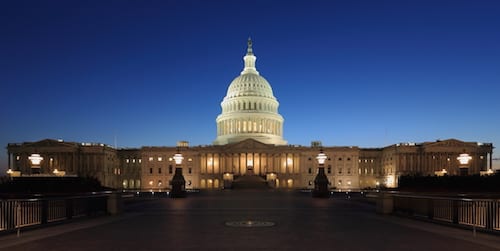
Taxpayers Protection Alliance Urges Members to Support the CARS Act
Taxpayers Protection Alliance
December 4, 2023
For Immediate Release
Contact: Kara Zupkus (224) 456-0257
WASHINGTON, D.C. – This week, the House of Representatives will consider H.R. 4468, the Choice in Automobile Retail Sales (CARS) Act of 2023, introduced by Reps. Tim Walberg (R-Mich.) and Andrew Clyde (R-Ga.). This legislation would limit Environmental Protection Agency (EPA) regulatory authority by prohibiting the agency from implementing updated emission standards and using the Clean Air Act (CAA) to limit vehicle availability based on engine type.
The Taxpayers Protection Alliance’s (TPA) President, David Williams, offered the following comment:
“The Biden administration’s EPA has been trying to eliminate the production and sale of internal combustible engine (ICE) cars, threatening an entire industry. The goal is to rapidly (and expensively) transition all Americans to electric vehicles (EVs) despite prohibitive costs and concerns with the existing energy grid capabilities. In April 2023, the EPA announced a proposed rule titled “Multi-Pollutant Emissions Standards for Model Year 2027 and Later Light-Duty and Medium-Duty Vehicles.” In setting such aggressive emissions requirements, the agency projects that, by 2032, two thirds of all new vehicles sold will be electric.
“However, despite the claimed environmental benefits, the costs, sustainability, and regulatory pathway remain troublesome. In July 2023, Kelly Blue Book estimated the average price of a new EV is more than $65,000, compared to $48,000 for ICE vehicles. To make up for this natural market disparity, policymakers pursued a $7,500 tax credit for new clean vehicles in the Inflation Reduction Act (IRA) to serve as a carrot for consumers looking to transition. The initial 10-year cost of this provision in the IRA is $271 billion. Yet, recent estimates from several sources suggest the overall 10-year cost to be two to three times larger, with some estimates pegging this cost close to $1 trillion. That’s a very expensive carrot. On the other side, the EPA’s regulatory action is this administration’s form of a stick. Individuals and businesses who choose not to transition will be forced to when ICE vehicles are no longer available on the marketplace because of overly stringent emissions standards.
“Additional costs on taxpayers will come when the energy grid can no longer support the burden that comes with charging EVs. California alone, the state from which many of these fiscally and logistically negligent policies derive, will have to spend upwards of $50 billion by 2035 to upgrade its distribution grid to cope with EVs.
“Heavy-handed, carrot-and-stick government intervention in the U.S. automobile industry and consumer markets to advance unproven technology remains an egregious use of regulatory power. We encourage members to support the CARS Act and reign in the runaway EPA.”
